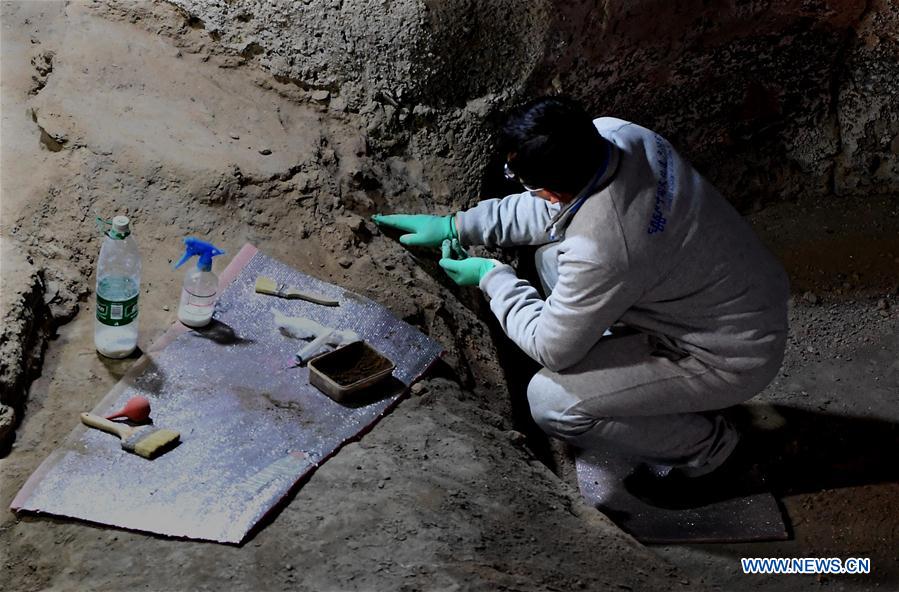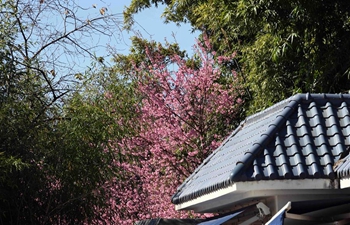Picture taken on Dec. 11, 2018 shows a specialist working at the foundation of a Neolithic house in the Dahe Village relic site museum in Zhengzhou, capital of central China's Henan Province. The foundations of a Neolithic house that has stood for over 5,000 years in central China's Henan Province will be examined and reinforced 46 years after they were unearthed. The four-bedroom home is part of the Neolithic Yangshao culture, dating back 7,000 years. (Xinhua/Li An)
ZHENGZHOU, Dec. 27 (Xinhua) -- The foundations of a Neolithic house that has stood for over 5,000 years in central China's Henan Province will be examined and reinforced 46 years after they were unearthed.
The four-bedroom home that covers nearly 50 square meters in Zhengzhou, capital of Henan, is located in the Dahe Village relic site that is part of the Neolithic Yangshao culture, dating back 7,000 years.
The roof is long gone, but the one-meter-high walls still stand, providing a complete spatial layout of the house. Specialists use tools such as brushes and bamboo knives to clean the dust and dead moss accumulated on the surface and inside small cracks before they are reinforced.
The Yangshao Culture, widely known for its advanced pottery-making technology, originated on the middle reaches of the Yellow River and is considered an important stream of Chinese civilization.
The house was built with wood as its "bones," hay as "muscles," and clay that covered the walls. Fire was then used to burn the entire building, similar to firing pottery, to make it strong enough to stand for thousands of years, according to Hu Jizhong, curator of the relic site museum.
More than 50 utensils, including 20 pottery ware were found in the house, along with a can of carbonized food grains. Experts said the four rooms had living and sleeping functions, demonstrating that private ownership and family had budded at the time.
The renovation will last about one year.


















